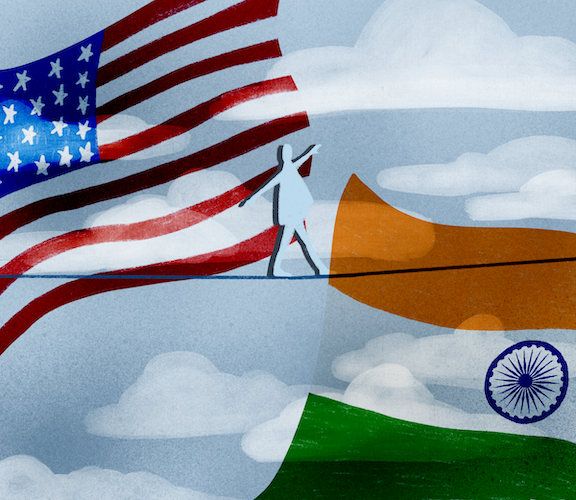As I scrolled through the news one morning, I saw the phrase “very Asian” on a headline. I immediately shuddered. Without even looking for the context, I felt threatened and upset by this. The words “very Asian” reminded me of times when my “Asian-ness” or “Indian-ness” was highlighted in a way that made me feel othered.
Michelle Li, a St. Louis news anchor, reported about popular Korean foods that are enjoyed during New Year. A response to her report rang with racism. Most memorably, she was told that she was being “very Asian.” While this comment had the connotations of a racial epithet, people on social media fired back, asking why being “very Asian” should even be used as an insult. Look up #VeryAsian on social media and your feed will be filled with posts celebrating culture and heritage.
I thought about this phrase quite a bit over the past couple of weeks. I was deeply impacted by the original connotations of the phrase. I went to a predominantly white high school where demonstrating any amount of cultural pride was scorned by the student community. I learned very quickly as an adolescent that managing assimilation and cultural preservation are like walking on a fine line, and I walked this tight rope every day.
While my internal code-switching was exhausting, it was a fear of my peers’ reactions that was stronger. Everything that made my three-dimensional, hyphenated personality was compressed and compartmentalized into something that would be digestible for white people around me. In doing this, I lived simple parts of my life behind closed doors.
I never understood why being myself was so hard because naturally, I am very Asian and very Indian. Indian food is my comfort food. I celebrate Indian festivals. I listen to Hindi music and watch Bollywood movies. My family speaks to me in multiple Indian dialects. I read books by Indian authors. I take my shoes off before I enter my house. Asian and Indian cultures permeate my entire life and being. It is a source of joy because it connects me to others with similar experiences. It also makes me unique as it symbolizes who I am.
When I heard the words “very Asian”, I did not think people would be able to turn this into a phrase of pride, and when they did, I wholeheartedly agreed. Not only did I have to critically analyze the racist comments, but I also had to undo my own internalized racism. There are a lot of beautiful components of identifying fully with your ethnic and racial identity; it is not simply a marker of oppression or pain that one carries. That is not to discredit the marginalization of APIDA folks in society or the sacrifices of Asian American immigrants. Rather, race and ethnicity are beautiful, joyous parts of one’s identity.
I continue to embrace being very Asian. I eat very Asian food. I consume very Asian media. I am from a very Asian family. It is who I am in the most positive, amazing way.

Comments are closed.